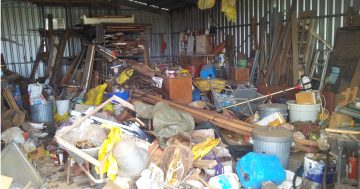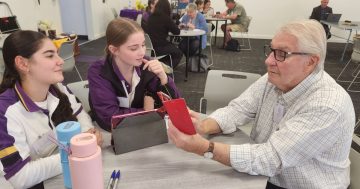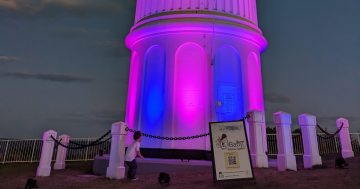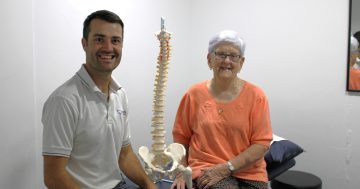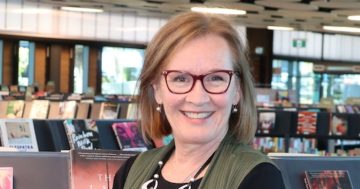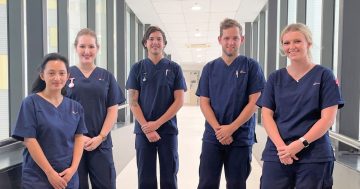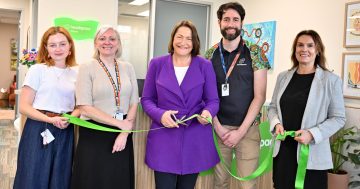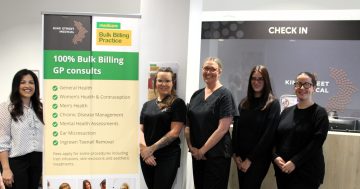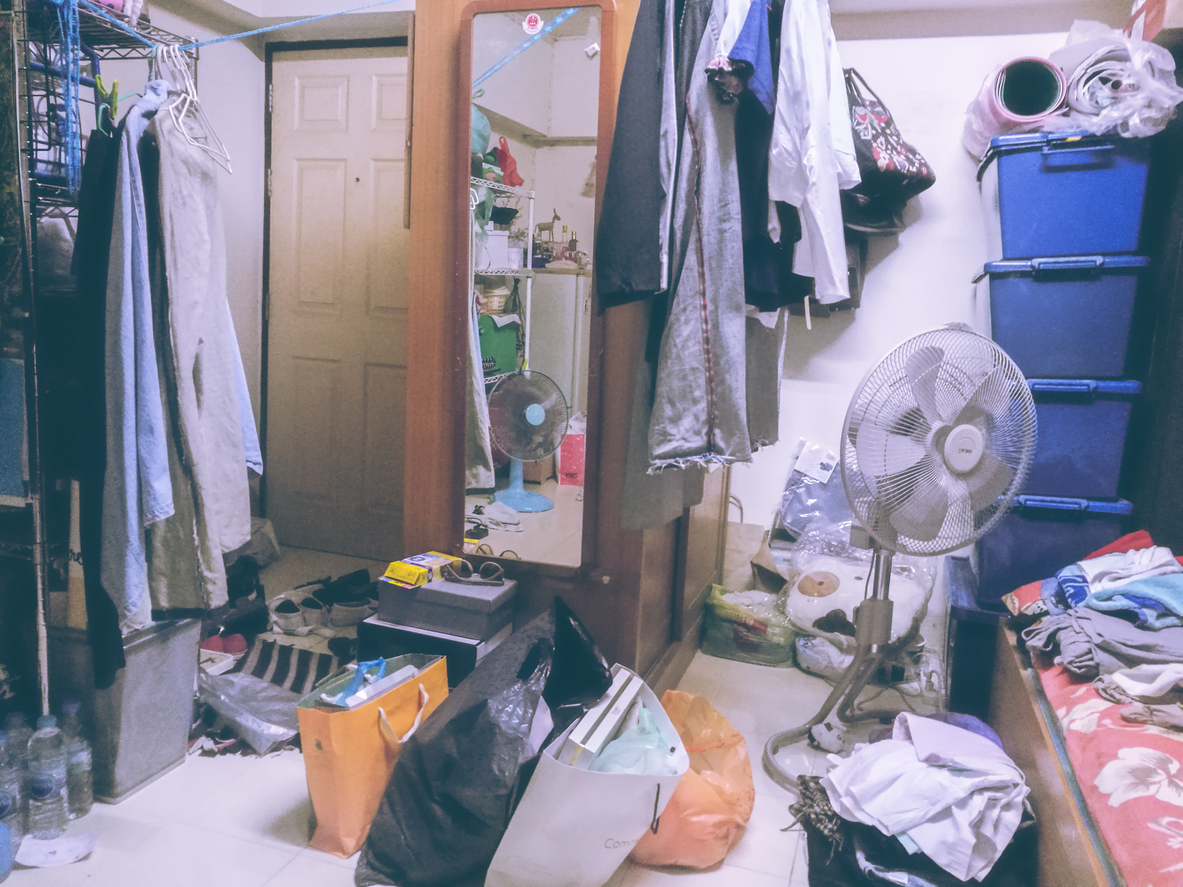
Hoarding disorder is a clinically diagnosed condition but there are experts who can help people regain control. Photo: Supplied.
There can come a time when the possessions we have accumulated over the years end up possessing us.
Cupboards and wardrobes are stuffed full of stuff, objects are piled on the floor leaving only narrow pathways through a home’s interior, building materials and gardening equipment accumulate outside, sometimes sparking complaints from neighbours to the council. It can be overwhelming.
Hoarding disorder is a clinically diagnosed condition and there are experts out there who can gently help people regain control over their home and quality of life.
Catholic Healthcare has many years of experience in supporting people to overcome hoarding disorder and is running free information sessions from 28 to 31 August over Zoom for those wanting information about its national online Buried In Treasures program.
Former client, Janice (surname withheld), completed the program and recommended it highly.
“I had problems with throwing things away for two reasons,” Janice said in Catholic Healthcare’s video.
“One was the fact that I had to save and go without to get it in the first place. And on the other side, some things were of sentimental value and family related and I felt like I was sort of the custodian.
“Some areas of the house were a bit difficult to get around. If somebody came to see me I could seat about two, maybe three people. That felt embarrassing.”
Catholic Healthcare program facilitator Amanda Peterson said there were many reasons people hoarded. Generally, it was because people had experienced some form of trauma in their life and their belongings gave them a sense of comfort and security.
Hoarding is exacerbated by the conviction the objects may be of use one day.
Another Buried In Treasures graduate, Pip, described herself as a gatherer.
“I would pick up nuts and bolts off the footpath, pots for future pot plants that never eventuated, and anything that I saw lying around I would bring home,” Pip said.
The team from Catholic Healthcare takes a gentle and supportive approach.
“People need to be in control of their own decision-making,” Amanda said.
“So, while it is good to have help from family and friends, it needs to be done in the right way.”
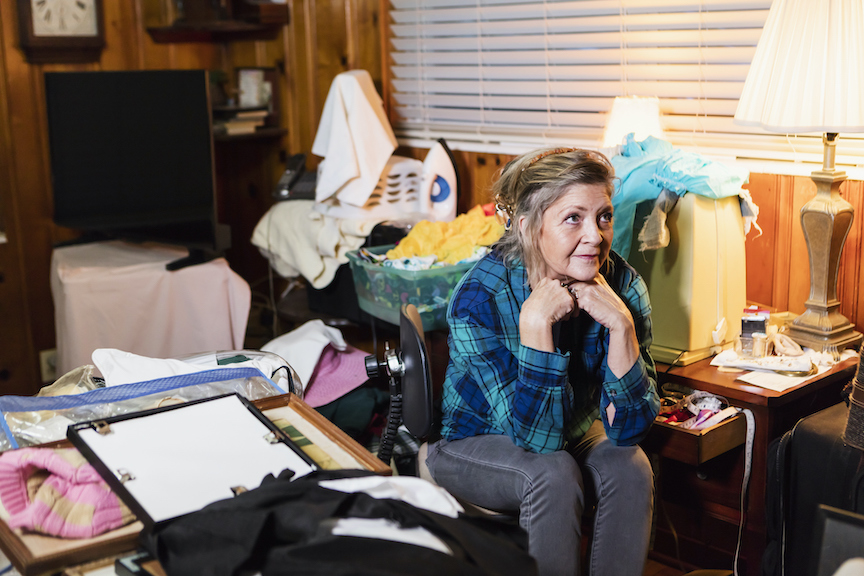
There is help available for people who find themselves overwhelmed by a hoarding disorder. Photo: Catholic Healthcare.
The problem may have developed over years or decades so it is not helpful if “helpers” expect to clear out a home over a weekend without understanding the psychological issues behind it.
“A lot of people want to do that,” Amanda said. “They want to do the big intense decluttering session and sometimes that is really difficult for the person you are working with. There are a lot of emotions behind it. It is overwhelming. There can be guilt, there can be shame and when they do too much, it can become too much.
“The biggest tip I would give people would be to start small. Set yourself some small goals and work on little bits at a time. Don’t look at rooms as a whole. Look at sections of a room and narrow it down.
“Concentrate on areas that you use the most so you can actually see the changes. Quite often people will start on the spare room or something like that and then when they walk away they’ll close the door.
“But if you are doing it in a room that you use often and you can see the changes that tends to trigger something to make you want to keep going.”
Information sessions are free and available to anyone. The dates and times are:
- For individuals: Monday, 28 August, 7 to 8:30 pm and Wednesday, 30 August, 1 to 2:30 pm
- For referrers (social workers, aged-care workers): Tuesday, 29 August, 1 to 2:30 pm and Thursday, 31 August, 1 to 2:30 pm
- For family and friends: Thursday, 31 August, 7 to 8:30 pm
After the information sessions, people can register for the online Buried In Treasures program – either a 15-week program or a targeted four-week program. They are free for people over 65 who receive a Commonwealth Home Support Program. The program can also be funded through a Home Care Package or through private funding.
Catholic Healthcare also facilitates a weekly online support group where people swap tips with others struggling with the same issues without judgment or shame.
Or people can look for the book on which the course was based, Buried In Treasures: Help for compulsive acquiring, saving and hoarding by David F Tolin, Randy O Frost and Gail Steketee.
For more information call 1300 931 638.









